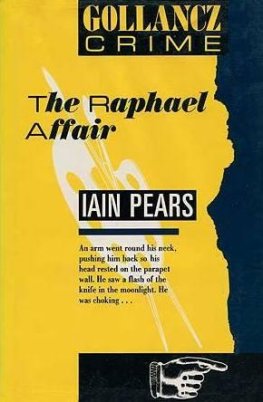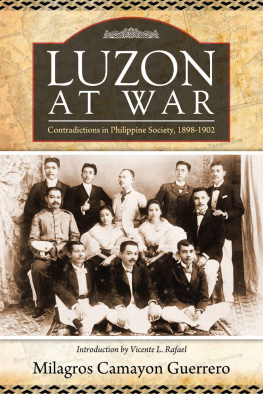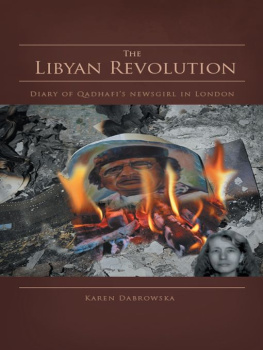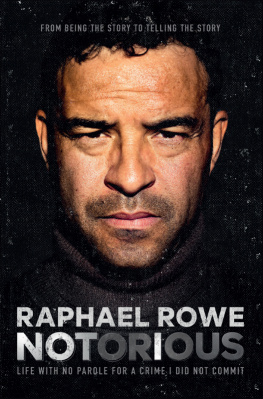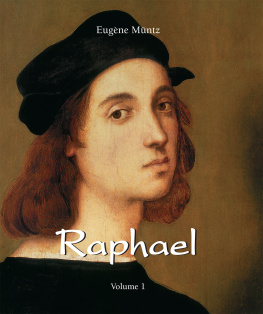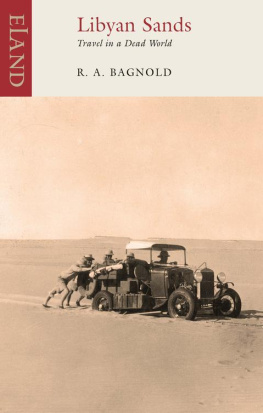This edition first published in UK 2016
By DARF PUBLISHERS LTD
277 West End Lane
London
NW6 1QS
United Kingdom
Copyright Darf Publishers 2016
First published in Italian by Giuntina 2015 as Tramonto libico: Storia di un ebreo arabo by Raphael Luzon
Translated by Gaia Luzon
The moral right of the author has been asserted
All rights reserved
This book is sold subject to the condition that it shall not, by way of trade or otherwise, be lent, resold, hired out, or otherwise circulated without the publishers prior consent in any form of binding or cover other than that in which it is published and without a similar condition, including this condition, being imposed on the subsequent purchaser.
Cover designed by Luke Pajak
ISBN-13: 978-1-85077-298-9
eBook ISBN-13: 978-1-850-77-299-6
Introduction
Official estimates speak of about 856,000 Jews who have fled their homes, cities and countries. Some Jews refer to themselves as Arab Jews because Arabic was their language, and for centuries, if not millennia, their roots were in the land of sun, desert and sea ranging from the Middle East to the Maghreb. Iraq, Syria, Iran, Lebanon, Tunisia, Morocco, Egypt, Algeria, Yemen, Tunisia, Aden, Libya: countries that had large, flourishing Jewish communities, formed by merchants, craftsmen, rabbis, scholars, doctors and administrators. Communities of 30,000 to 150,000 Jews who no longer exist, crashed into exile following the persecution and discrimination mounted after 1948, the birth of the State of Israel.
This book tells one of these stories, that of the Libyan Jews. It is assumed that the first Jews arrived in the territory once known as the Barbary Coast, which was inhabited by barbaroi (what the Greeks called those who didnt speak their language), after the destruction of the First Temple, Jerusalem, in 586 bc.
From then until 1967, the year in which Libyan Twilight begins, Jews have contested each new conqueror in North Africa. They fought with the Berbers against the armies of Mohammed, contributed to the growth of the region during the Ottoman Empire and Italian colonisation and mixed with the local population. However, they have always maintained their own traditions and a strong bond with their ancient faith. To understand the compliancy of the Jews of Libya, we can look to the Fascist era, when three Jews were publicly flogged after refusing to keep their stores open during Shabbat. At the beginning of the 1900s, there were no less than forty-four synagogues in Tripoli, indicating a fervent Jewish life and a deeply religious community.
Fascism carried the shame of racial laws. On 18 March 1937, Mussolini landed in Tripoli to declare: Italy considers the Jews to be under her protection. There is no racial or religious discrimination in my mind, remaining true to the policy of equality in the eyes of the law and freedom of worship. In July of the following year, he published the infamous Manifesto of Race that sanctioned discrimination against Jews by labelling them as inferior to the Muslim population. With the outbreak of World War II in 1939, around three thousand Jews were detained in a prison camp and three men accused of collaborating with the British were shot dead. This discrimination lasted until General Montgomery landed at Calabria, with the allies liberating Libya from the Italians shortly after.
Nevertheless, this liberation didnt establish a new period of peace for the Libyan Jews. The rise of Zionism and the strengthening of pan-Islamism emitted latent and destructive energies that brooded in the recesses of the Arab masses and resulted in repeated pogroms and attacks on Jewish neighbourhoods. In 1967, the Six Day War broke out. This angered Arabs and led to the expulsion of the Libyan Jews, ending a history that had lasted more than two thousand years.
In a sincere manner, Raphael Luzon reflects on the past, but he is aware that memory is deceptive and therefore he cannot claim to assert the absolute truth, nor is it an instrument that serves ideological impulses. It seems to me that Luzon has opened a big can of memories primarily for therapeutic purposes, to soothe the wounds of exile and to give relief to the nostalgia for his homeland; a nostalgia that lives between the lines of Libyan Twilight.
The authors other motivation is the pursuit of justice. We learn about the assassination of the Luzon and Raccah families in Tripoli, a crime that never resulted in a trial or conviction; nor was there a funeral for the innocent victims. Without anger or a desire for revenge, Luzon seeks justice.
I was impressed with Luzons openness when dealing with others and his deep desire for reconciliation and dialogue between different religions, a dialogue that relies on equality. I then discovered that Luzons political activities for the preservation of Libyan Jewry continues to this day in a fervent confrontation between Jews, Muslims and Christians, who refuse to surrender to extremism.
Libyan Twilight is a short book, which is well written and can be read very quickly. I recommend you linger, keep it with you for a while, leafing back and rereading sections, because, in the words of Luzon, we can often find the inspiration to embark on a path of peace and memory.
Roberto Saviano




